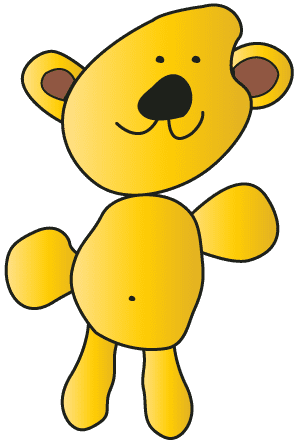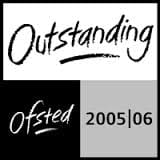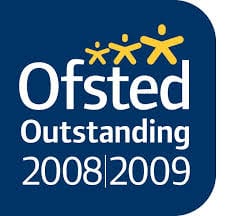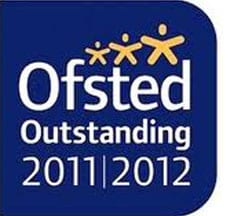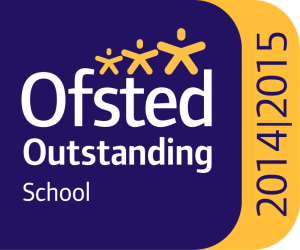At our nursery we follow the EYFS. This is a statutory framework that sets the standards that all early years providers must meet to ensure that the children in their care learn and develop well, stay safe and are kept healthy.
The EYFS promotes partnership working between practitioners and families to ensure the best start possible for children. It seeks to make sure that every child makes good progress and has the opportunity to gain a secure foundation through learning and development opportunities. These opportunities and experiences must take into account individual children’s needs and interests.
The Framework is split into 3 sections;
- characteristics of effective teaching and learning
- prime areas- 3 areas of learning, which are particularly important for a child’s development and future learning as they underpin the remaining four areas of learning
- specific areas- 4 areas of learning, through which the prime areas are strengthened and applied
Characteristics of Effective Learning
The characteristics of effective learning describe behaviours that children use in order to learn. These learning dispositions and behaviours are really important because they build the foundations needed to support children to become strong lifelong learners and independent thinkers. They are at the heart of what we do and describe what we want for all of our children. They inform our practice, from the way we plan and reflect, to the environment we create and the rich learning experiences we offer.
The 3 main characteristics are:
- Playing and exploring – Children investigate and experience things, and ‘have a go’.
- Active learning – Children concentrate and keep on trying if they encounter difficulties, and enjoy achievements.
- Creating and thinking critically – Children have and develop their own ideas, make links between ideas, and develop strategies for doing things.
Prime areas
Personal, Social and Emotional Development
Personal, social and emotional development (PSED) is crucial for children to lead healthy and happy lives and is fundamental to their cognitive development. Within our nursery, children experience strong, warm and supportive relationships with adults which enable them to learn how to understand their own feelings and those of others. Children are supported to manage their emotions and develop a positive sense of themselves. Together we encourage children to have confidence in their own abilities and to persist and ‘have a go’ when things seem a little difficult. Through adult modelling and guidance, children learn how to look after their bodies, including healthy eating, and managing personal needs independently. Through supported interactions with other children, they learn how to create relationships and friendships, co-operating and resolving conflicts peaceably.
Communication and Language
The development of children’s communication and language underpins all seven areas of learning and development. Within our nursery children have the opportunity to experience a rich language environment. Nursery staff have a good understanding of speech and language development and support children in developing their confidence to express themselves. We help them to gain the skills to interact, communicate and listen in a range of situations. By commenting on what children are interested in or doing, and echoing back what they say with new vocabulary added, practitioners build children’s language effectively.
Physical Development
Physical activity is vital in children’s all-round development, enabling them to pursue happy, healthy and active lives. We provide opportunities for play both indoors and outdoors, supporting children to develop their core strength, stability, balance, spatial awareness, co-ordination and agility. Our staff encourage the development of gross motor skills through games, dance and other experiences. They help children to understand the positive impact that physical activity can have on their bodies and social and emotional wellbeing, alongside supporting them in making healthy choices in relation to food.
Within our nursery, children have the opportunity to access and explore a variety of experiences that develop fine motor control, precision and hand eye co-ordination. Activities such as block play, small world play, sensory experiences, puzzles and the use of a variety of tools, allow children to develop control and confidence. Our staff support children, by scaffolding learning and skill development.
Specific areas
Literacy
Literacy encompasses reading and writing from the earliest stages of development. Books and stories are a very important part of our curriculum. By providing children with access to a wide range of reading materials linked to their interests, they develop a love of reading. Stories and non-fiction books are carefully selected and our staff spend time reading with children, both with individuals and with small groups. At nursery we provide opportunities that encourage children to link sounds and letters to support them in the process of learning to read and write. Children experience rhyme, rhythm, alliteration and letter sounds through fun activities that help to develop their reading skills.
Writing is an essential skill that children learn and it is closely linked to a child’s physical development. In our nursery we use different materials and resources to encourage children to explore how they can make different marks and control tools with their fingers, wrist and hands. We create opportunities for children to use their bodies in different positions to utilise tools effectively, building the physical strength and skills that are required to hold a pencil and form letters .
Maths
Maths plays a major role in a child’s development and helps children makes sense of the world around them. We provide children with meaningful opportunities and experiences that develop their skills in counting, understanding and using numbers. We encourage them to solve problems, including those that include addition and subtraction. In nursery we support children in using everyday language to talk about and describe shapes, spaces and measures. Staff nuture an interest and enjoyment of maths, using mathematical words and ideas when supporting children in their play.
Understanding the World
Understanding the world involves supporting children to make sense of their physical world and their community. We recognise that the frequency and range of children’s personal experiences increases their knowledge and sense of the world around them. In response to this, we provide first hand experiences, where children have opportunities to experiment, investigate, and find out, ask questions and use their senses. Children are able to explore, observe and find out about people, places, technology and the environment.
Expressive Arts and Design
The development of children’s artistic and cultural awareness supports their imagination and creativity. Within our nursery, children have the opportunity to engage with the arts, exploring and playing with a wide range of media and materials. Opportunities are provided and encouraged for children to share their thoughts, ideas and feelings through a variety of activities in art, music, movement, dance, role-play and design and technology. The children are supported to value their own unique ideas and those of others. The environment offers a stimulating but calm creative area where originality and expressiveness are valued. Children are able to express themselves through various types of representation.
Useful Information
You can view or download further information about EYFS and your child’s learning and development by clicking the links below:
Special Educational Needs and Disabilities (SEND)
At Horden Nursery School, we believe that inclusive education means providing all pupils with appropriate education and support alongside their peers. The Curriculum is all the planned activities that the school organises in order to promote learning, personal growth and development. Further information can be found in the SEN Information Report.
If you would like to discuss your SEND requirements in detail please contact the school to arrange an appointment.
Adobe Reader
You may need a product like Adobe Reader (free download) to view our PDF documents on our website.
